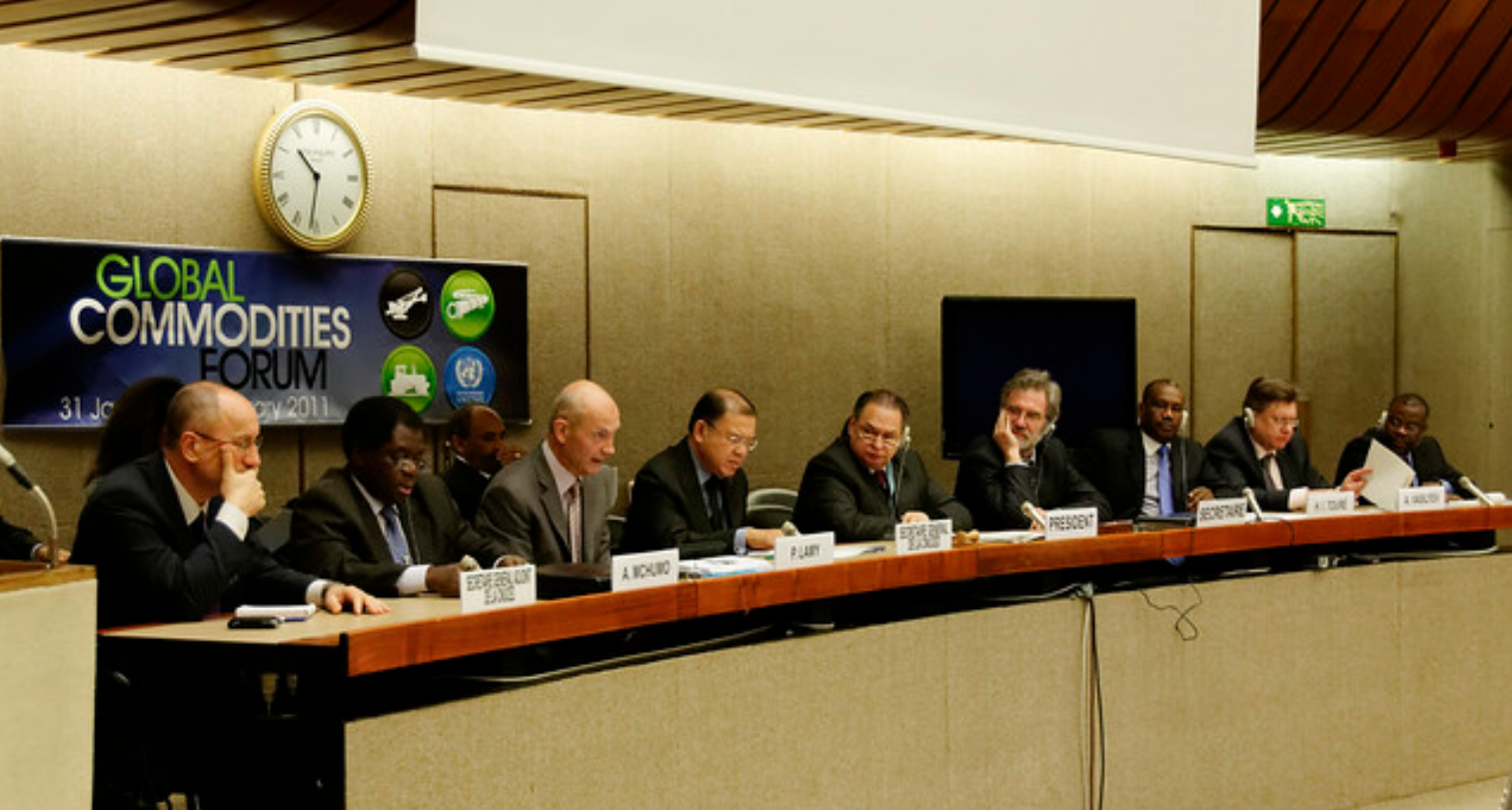Commodity Dependence is a Development Problem
The 2nd Global Commodities Forum (GCF) co-sponsored by CFC and hosted by UNCTAD, opened here with key addresses from chiefs of several international agencies, who reiterated that this year's theme: "Volatility in International Commodity Markets" - -was timely, as prices for basic products edge upward towards the limits reached during the 2008 food and energy crises.
There's growing concern about volatile and rising prices for basic farm produce, petroleum and raw industrial materials, especially for the poor of the world, and steps are needed to calm the historically turbulent commodities markets.
Managing Director, Amb. Ali Mchumo, in his statement, said recent developments in the commodity markets have been a subject of intense attention and discussion by the members of the CFC and all the stakeholders of commodities projects financed by the Fund, especially in commodity-dependent developing countries.
"The challenge is to find practical workable solutions to the perennial problems of the commodity economy, since there's not much disagreement in the international community that commodity dependence is a development problem," said Amb. Mchumo.
He added that the forum could make a major contribution to the international development by drawing attention to the need for bridging knowledge and policy action in the commodities sector. Bridging this gap, as a matter of common interest for sustainable development of commodity sector, is one important message that should come out of the discussions at the forum.
He reminded the participants that the Accra Accord called on UNCTAD to "contribute to building effective multi-stakeholder partnerships with a view to identifying innovative approaches to resolving commodity related problems."
"My hope is that the Forum will effectively meet this challenge and not become another ‘talk shop,'" said Amb. Mchumo.
As host, UNCTAD's Secretary-General Supachai Panitchpakdi told the meeting that there are serious concerns about the way in which commodity markets have been evolving in recent years. He said that since mid-2010, commodities have, for the second time in three years, been experiencing extremely high price volatility. He warned of "speculative distortions that complicate the economic management of commodities production and trade."
He called for greater efforts to identify policy levers that can rein in excessive volatility and maintain prices within a reasonable band, while urging commodity-dependent developing countries, to continue efforts to diversify their economies, so that they are less vulnerable to shifts in commodities markets. He also noted that natural events, which may be linked to global warming, have spurred upward pressure on prices for agricultural goods, such as wheat, cotton, and especially for copper prices, which have risen 35 per cent, since the summer of 2010.
"Commodity volatility has huge negative impacts on vulnerable groups, such as low-income households in poor, developing countries, for whom food expenditure can account for up to 80 per cent of household budgets," he said.
According to Pascal Lamy, Director-General of the World Trade Organization, 2011 will see the prices of most commodities rise, as the rise in global GDP bolsters demand, led by emerging economies. Global GDP is set to grow by 4 per cent this year. "Over 70 per cent of the growth will come from commodity-intensive emerging markets. China, India and Latin America, in particular, will be acting as a ‘pull' for global commodities.''
In his remarks, Lamy said volatility is, at its worst, in tight and closed markets. It eases in open and, hence, deeper markets. "Completion of the Doha Round of global trade talks could calm the picture. In fact, were this round to be completed, least developed countries (LDCs) would get almost entirely duty-free, quota-free access to developed world markets," he said.
The 2nd Global Commodities Forum (GCF), organized by UNCTAD took place at the Palais des Nations in Geneva from 31 January to 1 February 2011. Supported by the Common Fund for Commodities and other partners, the forum is a high-level neutral and integrated platform.
It brings together stakeholders to address, informally and in a holistic way, key issues in the commodity economy. Ministers and other high level officials, prominent business leaders, professional advisors and academics are among the speakers, moderators and participants.
The forum will look at: the instability of commodity markets and their interconnectedness; the effectiveness of commodity policies; long-term trends; innovation and the sustainability of the production, distribution and use of commodities; the commodity business practices and the emerging regulatory environment.

